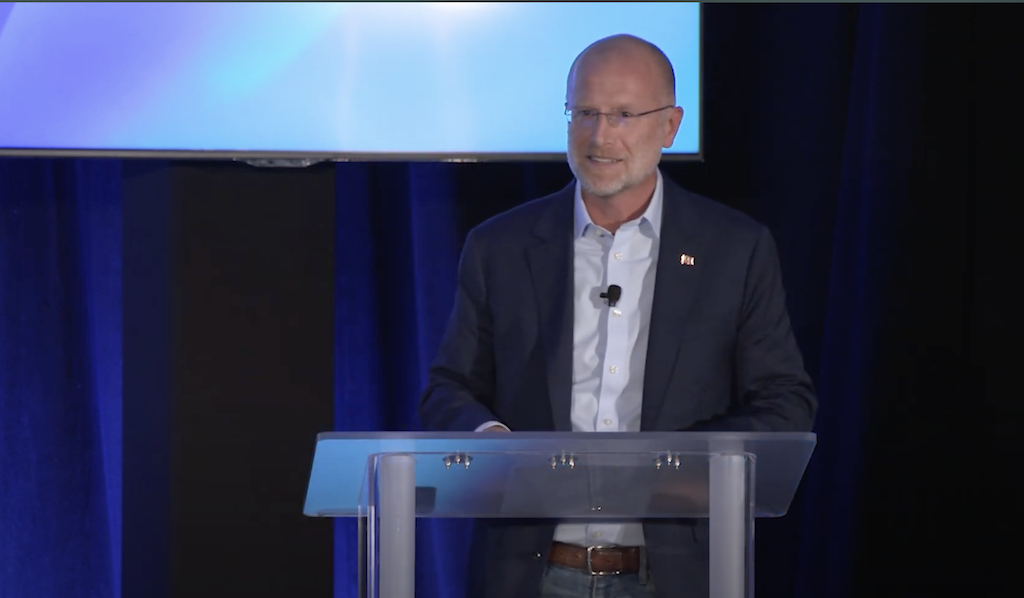FCC Commissioner Brendan Carr, Elon Musk Swipe Over Starlink at Biden, FCC
FCC Commissioner criticized the deployment of wire-based broadband in rural areas where Starlink is available.
Corey Walker

WASHINGTON, January 30, 2024 – Federal Communications Commissioner Brendan Carr criticized a decision by the commission to turn down subsidies for SpaceX’s Starlink broadband satellite constellation after the Joe Biden administration announced earlier this month funding for wireline broadband networks in North Carolina.
The White House on January 18 outlined a plan by the U.S. Treasury Department to spend $82 million from the Capital Projects Fund to link 16,000 homes throughout the tarheel state to broadband. The funds will be infused into the state’s Broadband Stop Gap Solutions Program, an effort to expand broadband networks into areas that lack access.
In response to the announcement, Carr took to social media platform X to express his displeasure based on a claim that the satellite connectivity would have cost less per location and would have been faster to deploy than the networks announced on January 18.
“In 2020, the FCC secured a commitment from Starlink to offer high-speed Internet in rural areas for $1,377 per location in support. The Biden Administration rescinded that deal, and is now spending $5,125 per location. Spending over 3X more & taking years longer is not a win,” Carr said in the social media post, alluding to the Democrats on the FCC.
In August 2022, the FCC refused to give Starlink $855.5 million in rural broadband subsidies from the Rural Digital Opportunity Fund, citing the company’s nascent technology and uncertainty about its ability to maintain threshold internet speeds.
The agency upheld the decision in December, saying that speed tests showed its current networks operating well below what Starlink’s bids committed to, and the FCC was not convinced the company could improve its technology enough.
SpaceX CEO Elon Musk chimed in to the social media thread, denying claims made by the FCC in its denial that it could not meet the 100 Megabits per second (Mbps) down * 20 Mbps upload threshold.
“Utterly false. Starlink exceeds that right now,” Musk posted on X.
However, Musk conceded that Starlink speeds dip in dense areas during high-usage hours – though that’s in areas with over double the threshold speeds, he claims.
“Average bandwidth during peak hours in high density areas is lower, but this award is specifically for low population density areas of the country, where 300Mb/s is normal,” Musk said.
The RDOF was adopted by the FCC in January 2020 to expand broadband access to rural regions of the country. The initiative aims to spend $20.4 billion over a 10-year period to address the lack of connectivity in underserved regions.
SpaceX initially submitted a successful auction bid to serve 642,925 locations over 35 states under the former FCC Chair Ajit Pai.
But a review of the claims in the applications under the new commission led to greater scrutiny. Starlink opposed the denials, but advocates of fiber hailed the decision, saying that it provided a clearer path for fiber-based solutions.









Member discussion